Preface!
When I first started reading JoJo’s Bizarre Adventure, I had to ask a friend (Hi Ryan!) if it was serious or not. He assured me that JoJo’s Bizarre Adventure was not, in fact, serious, but was absolutely trying to be silly.
He then recommended Fist of the North Star. And mentioned it multiple times. When I finally picked it up, I didn’t need to ask him if it was serious. Not because I wasn’t sure, but because I didn’t care. Midway through volume three, I said to my wife that this was far and away the most ridiculous thing I had ever read.
And by ridiculous, I mean in all the best ways, of course. There’s nothing like seeing the most jacked dude in the world dismantle endless throngs of gangs with naught but his finger.
Preface over.
I’ve seen more and more people talking about how they want villains who are just villains. Villains who don’t have a sympathetic angle, or see themselves as the hero of their own story. Stop trying to make sense of why this bad guy is so bad, essentially.
Personally, I’ve never been of that mind. I love a villain with layers. I want to know why they feel the need to dismantle galaxies or slaughter with no remorse. I’ve always considered it part of being a storyteller, giving every character a reason to be the way they are.
My favorite characters are the complex ones. Boromir. Snape. Aza, from Hell’s Paradise. Barou from Blue Lock. These are morally grey characters. It gives you more to think about. Even Dio, from JoJo’s Bizarre Adventure has a traumatic history tracing back to his childhood that, in a way, vindicates his behavior. Even though he is referred to by Speedwagon as “pure evil, right down to his bones.” He is certainly that, but the big question—can you blame him?
So what’s the value in a villain who’s just villainous?
Thanks to Fist of the North Star, I think I’m starting to get it.
Before we get into Fist of the North Star, here’s what you need to know.
Ken is a deadly assassin trained in an age-old martial art. In the barren wastelands in which this series takes place, Ken travels to and fro, completely eviscerating all the bad fellas that get in his way, or just so happen to be close enough to be worth a side excursion. Sometimes he saves hostages, sometimes those hostages get killed in front of his eyes and harden his resolve to save future hostages. It’s a rip-roaring good time.
And that’s all you need to know.
There’s a pretty clear theme from the moment you enter Fist of the North Star—this is an unforgiving world. Ruthless gangs are everywhere, and they kill for the sport of killing. Not exactly the place you go for complex villains, so finally, at last, I was excited to see what it felt like to just have villains be villains.
Up until this point, my best reference for villains being villains was Emperor Ming, from Flash Gordon. This guy just wants to destroy stuff for jollies. There’s no hidden trauma, no deeper want that he’s hurting from and overcompensating by mass destruction. He’s just a villain.
Pretty much every other villain I come across has a reason to be the way they are. Voldemort? He had a rough childhood. Darth Vader? He was manipulated. Even Palpatine, while incredibly evil, is doing all this for his own gain, to be in greater power. That’s a reason to be the way he is. Same with Sauron.
Wanton evil though. Just flippantly KO-ing everything you come across, that’s a different brand of villain, and it’s the brand of villain that Fist of the North Star has in abundance.
Everyone that Ken fights has no redeemable qualities. It’s straight up good vs evil. When he faces down a bloodthirsty killer, there’s no cutaway to the tortured life of that villain, no flashback to how the world shunned them. I mean, I used to respect Demon Slayer for its use of villain veneration, but, turns out, it wasn’t that remarkable. Every manga does that. If anything, Demon Slayer shouldn’t have done it, because their villains were straight villainous, wanton evil, flippantly KO-ing everything they came across.
And then suddenly we’re supposed to care?
So what is the point of a villain with no hope of redemption? Well, for starters, it allows the hero to go gangbusters without remorse. I mean, these suckers are so evil that as readers, we can’t wait to see them implode and/or explode and/or be dismembered in fun and creative ways. I don’t consider myself bloodthirsty, but for these villains? I couldn’t wait to see Ken deploy his singular finger of destruction and erase these villains.
And now, a brief intermission for a montage of villainy from a single villain.
Even stepping beyond the deserved destruction though, having truly villainous villains allows your heroes to be far more heroic. Everything is extremely justified. When Batman refuses to kill a villain, I’m often left conflicted. Wouldn’t Gotham City be better off if he just dropped Joker from a high rise once and for all? Maybe. But Joker has layers. I mean, he sings show tunes with Lady Gaga in prison.
Ken is a righteous dude because he slaughters bad guys. His unflinching willingness to eliminate evil doesn’t lead to any conflicted feelings. He’s as easy to root for as any hero out there.
Even better, when characters do appear with even the slightest bit of uncertainty as far as their moral compass, it’s exciting. Take for instance the introduction of Rei in volume three. A martial arts user himself, the yang to Ken’s yin, Rei makes it very clear from the start that he must kill the man with seven scars on his chest.
That’s Ken.
But Rei doesn’t seem evil.
What a predicament!
Here Ken has been slaying fools and this new character, with the slightest tweak, introduces an uncertainty we’ve not felt before. Normally this would be no big deal but because everyone is so good vs evil, that smallest variation makes a big difference. It doesn’t even amount to much, Ken and Rei still murk the pure evil villain and become friends, but still, it was enough to vary the formula to satisfaction.
If that isn’t enough reason to have a pure evil villain, let me just say it—it’s just plain fun. A hero saving the day is one thing, but when it’s such a straightforward saving the day from unadulterated evil situation, it requires no additional thought. And sometimes—world being what it is and all—that’s a mighty fine thing.

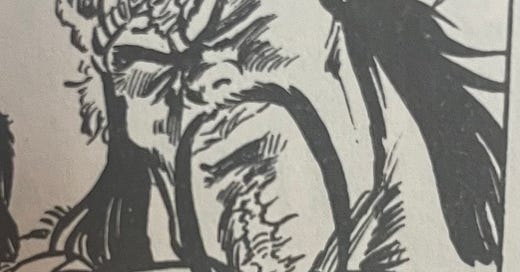


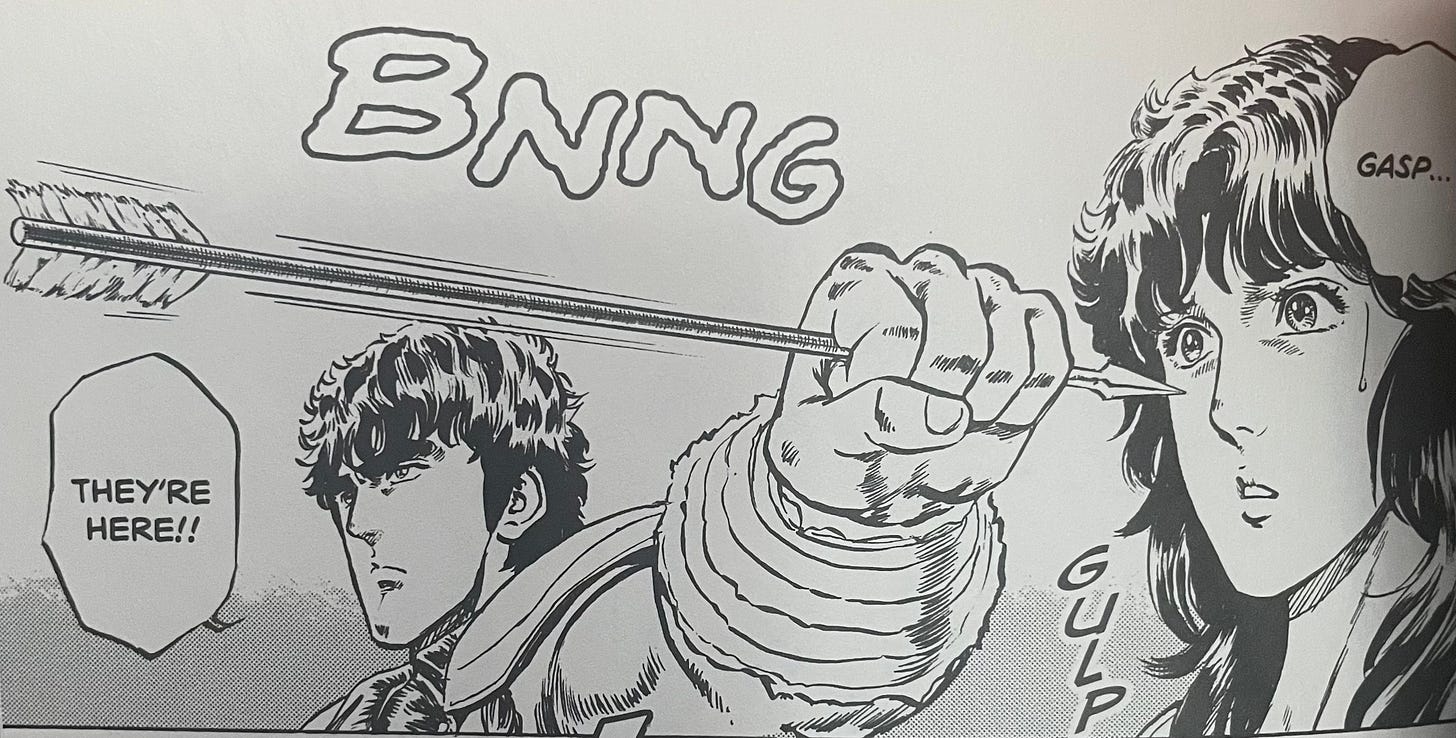
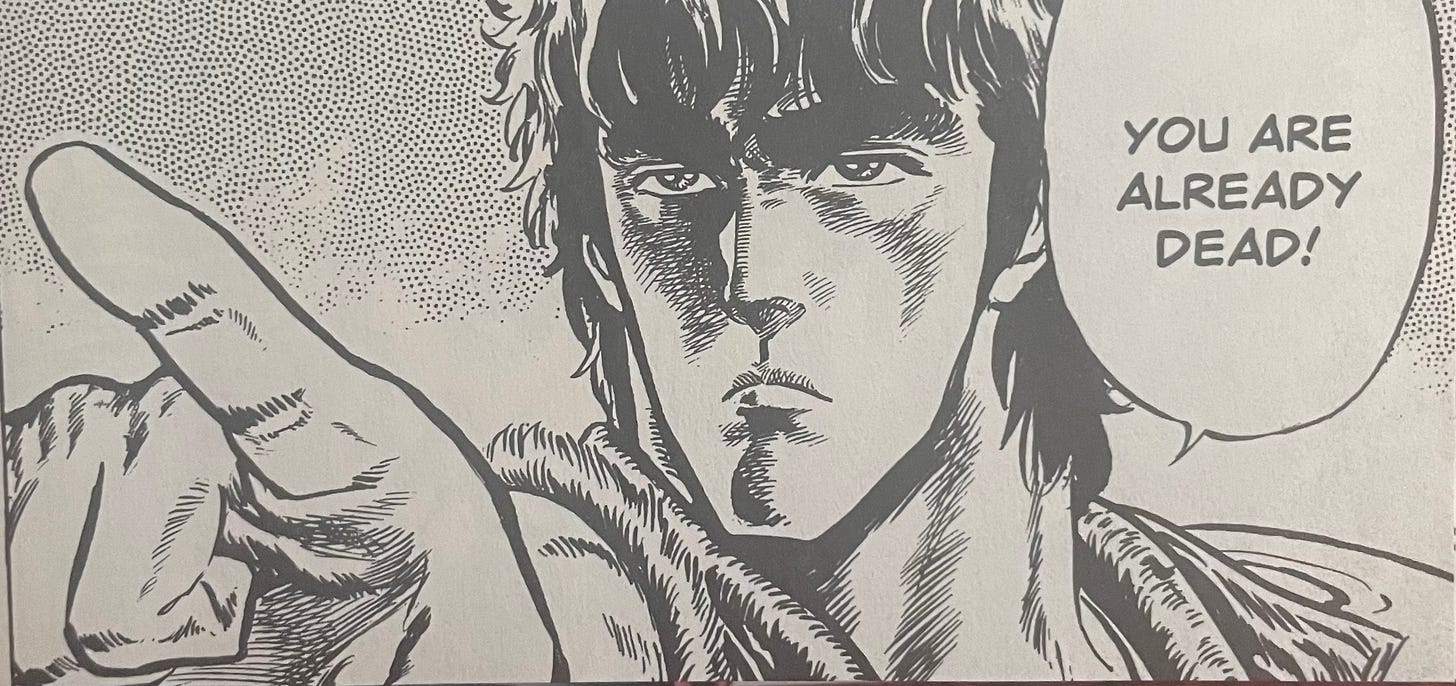
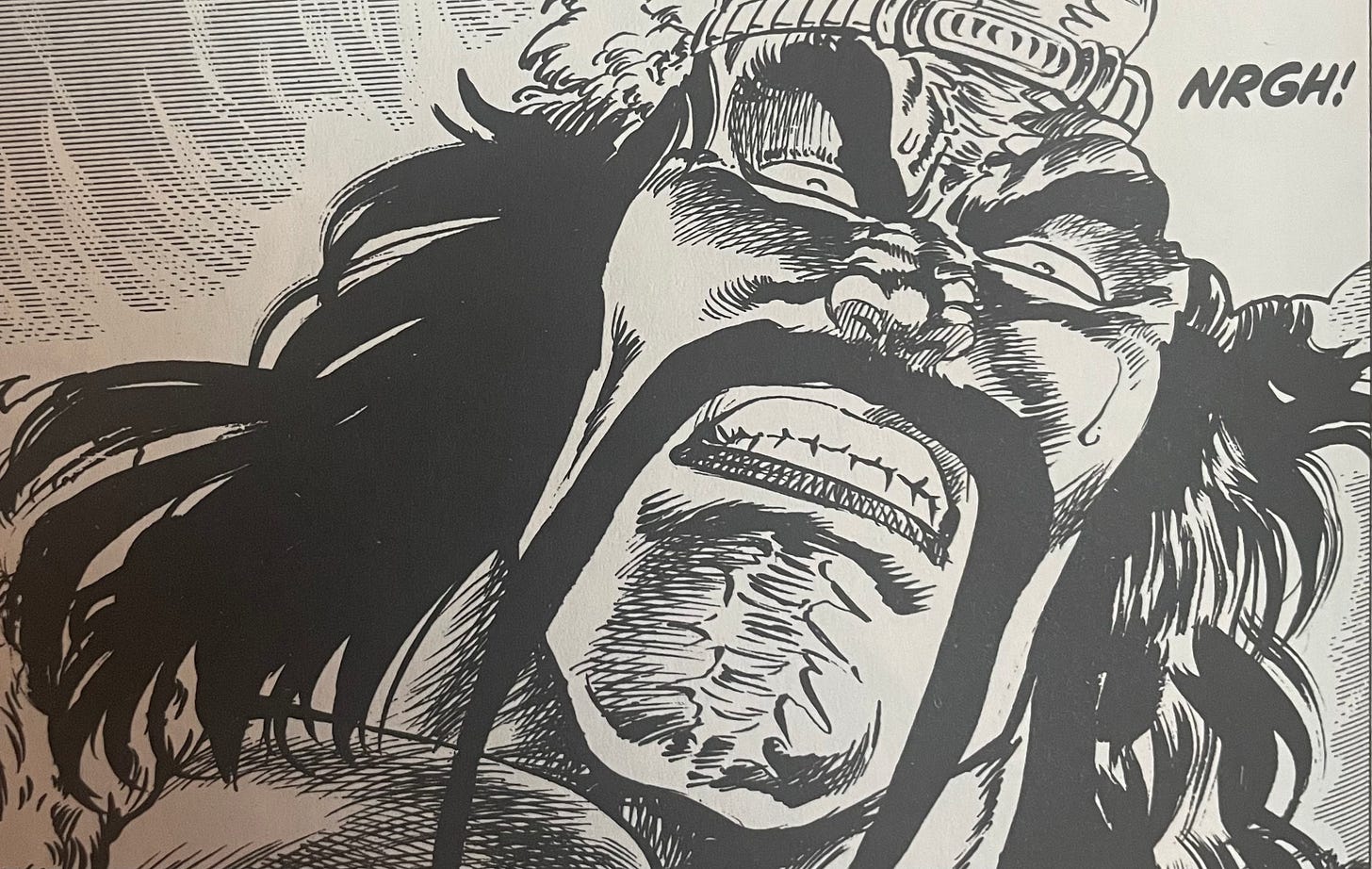
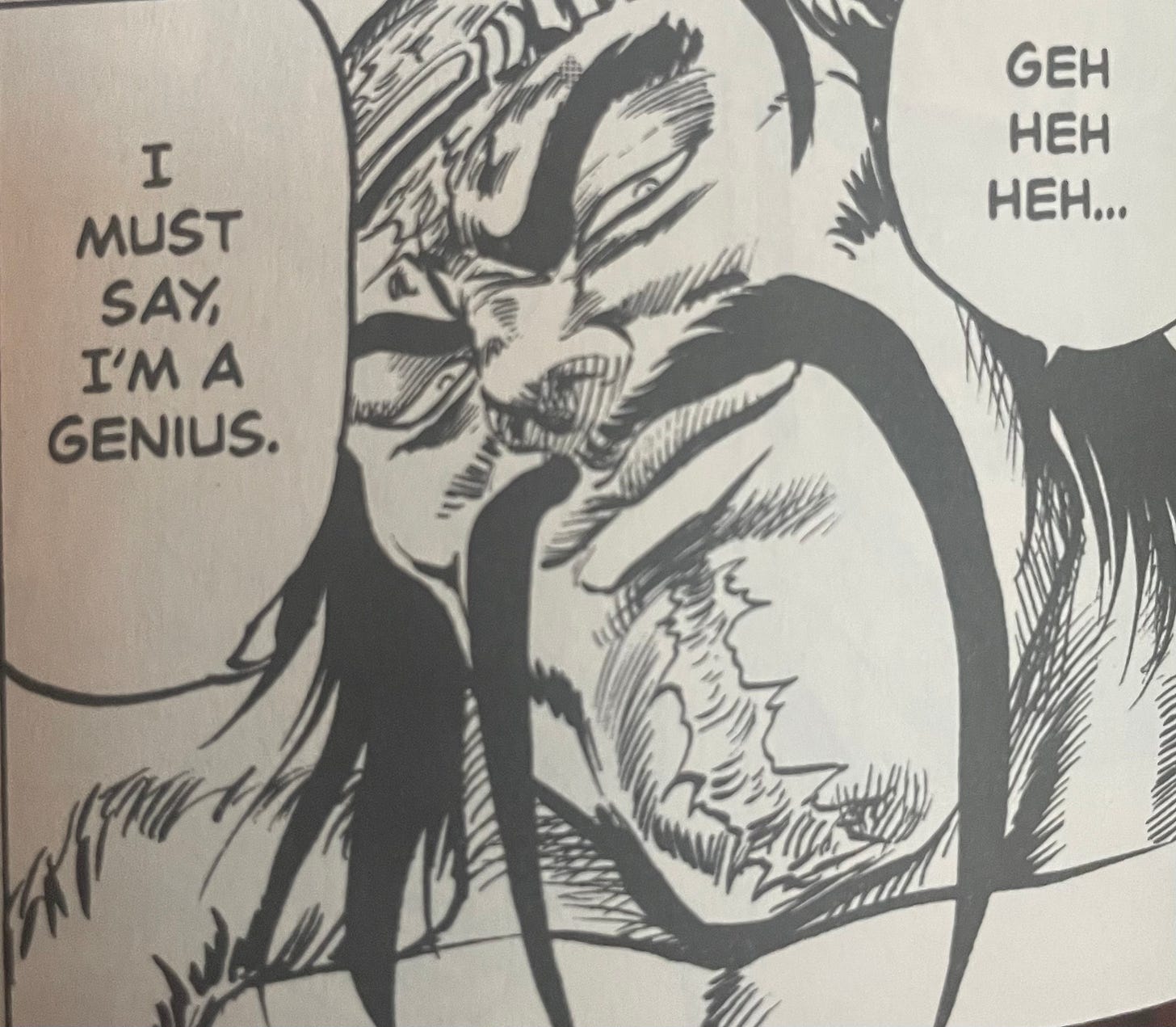
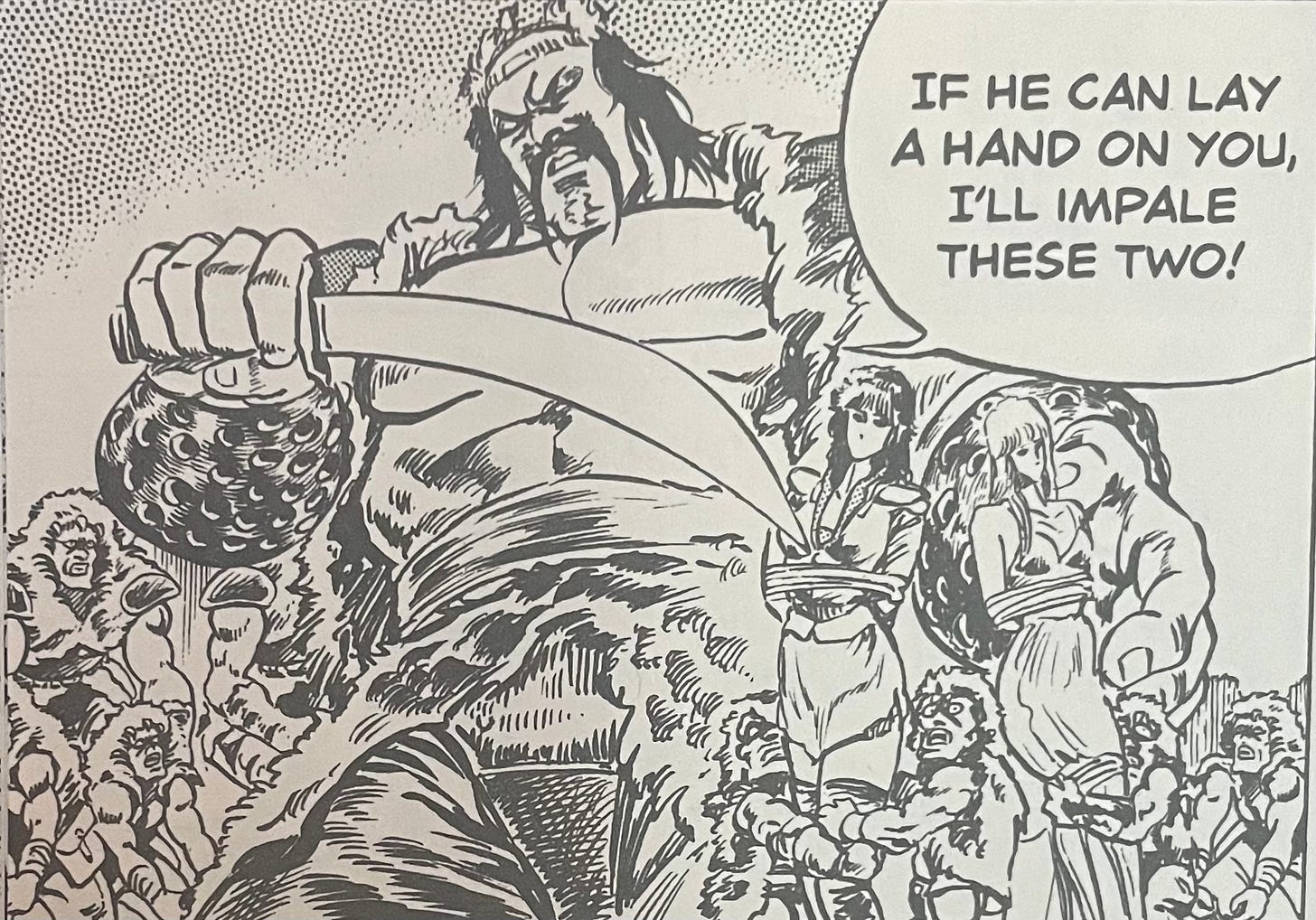
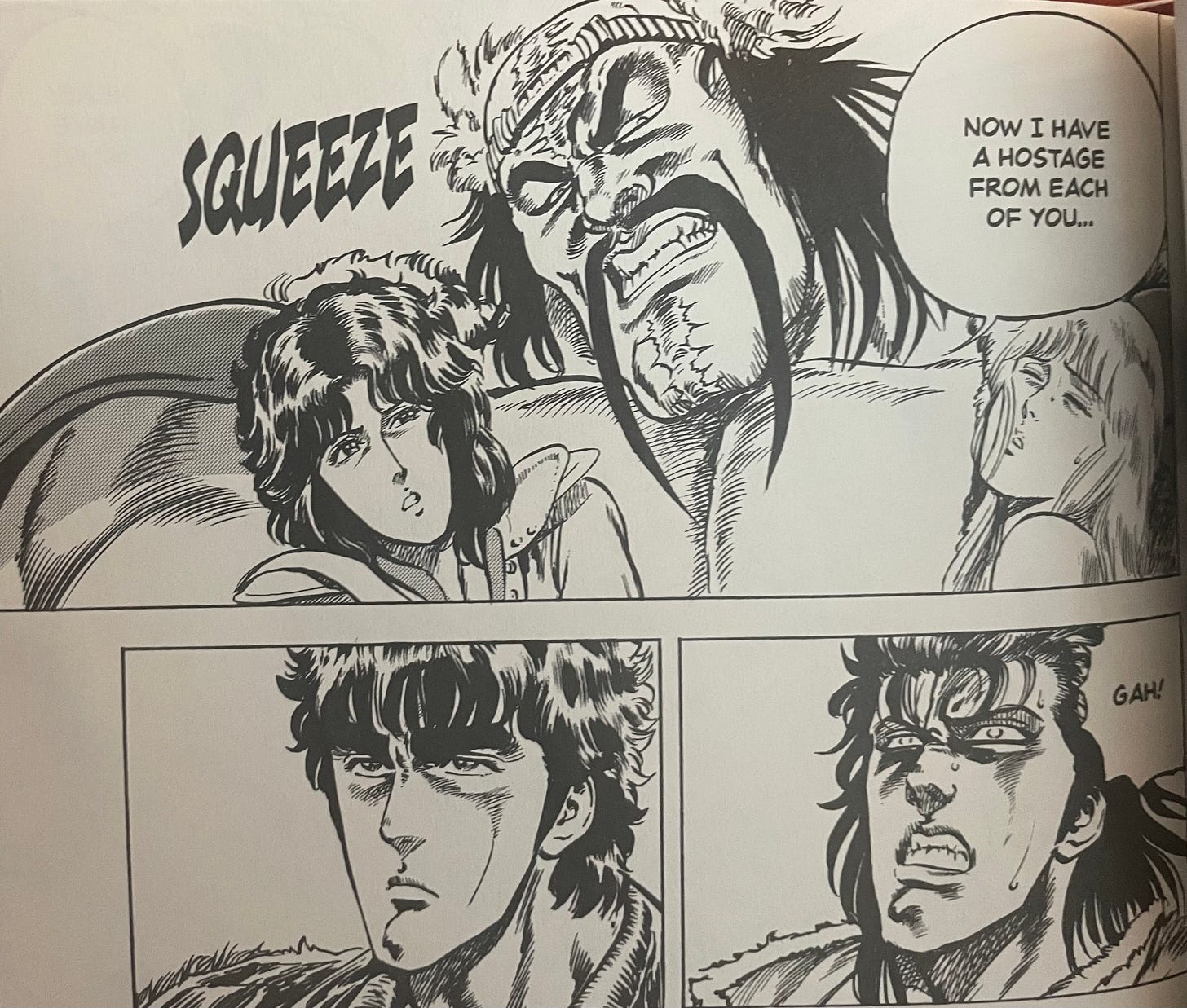


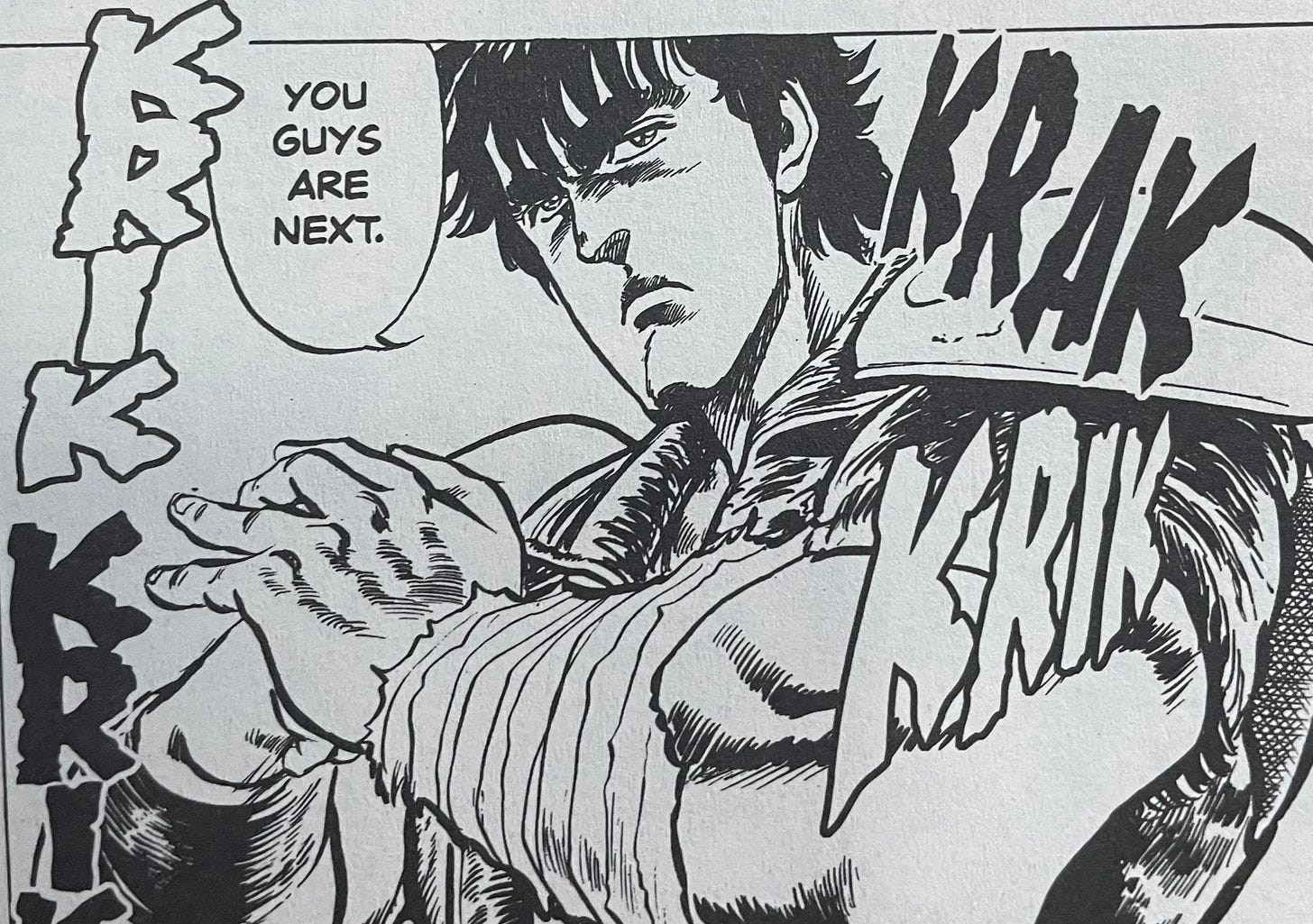
I believe there are specific plots in which a 'layered villain' is needed. And other stories just need simple-minded 'I'm evil' villains.
For example, when I watched Cruella (the 2021 film), I was so disappointed. Damn, I wanted that character to just be a crazy lunatic baddie.